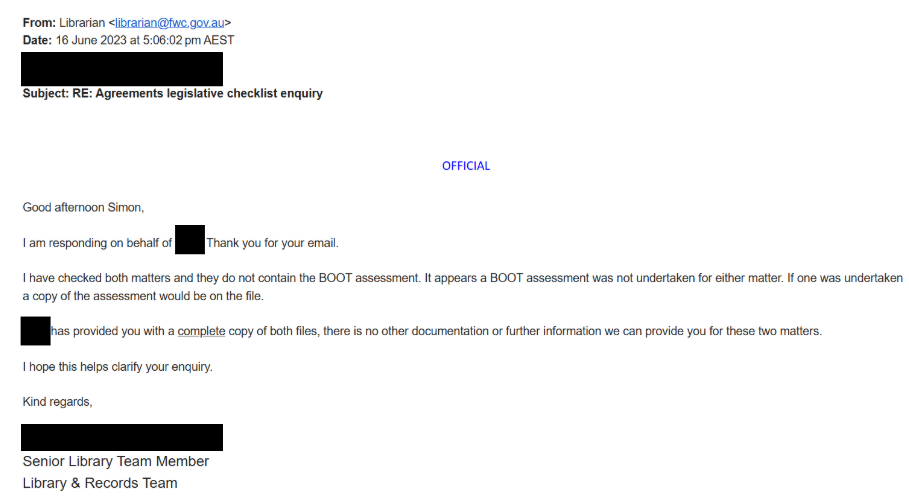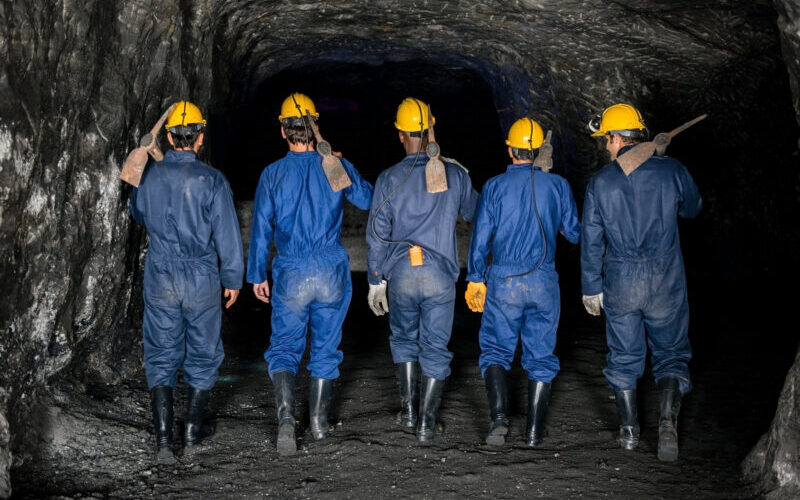BHP has been ordered to pay fair wages to contractors, while the FWC ignored the more serious issues of wage theft and providing justice to whistleblowers. Stephanie Tran investigates.
In a landmark decision this week, the Fair Work Commission (FWC) ruled against mining giant BHP, ordering the company to pay labour-hire workers the same wages and conditions as its directly employed staff. The decision applies to workers at three Queensland coal mines and is expected to cost the company approximately $66m per year. If extended across BHP’s entire coal operations, the cost of compliance could reach $1.3B annually.
While the ruling is being hailed as a major win for workers and the union movement behind the Albanese government’s “same job, same pay” laws, it fails to address a much larger, unresolved issue: the billions in wages stolen from coal miners over the past two decades.
“The recent Fair Work Commission decision may appear to be a long-overdue step toward correcting unlawful labour hire practices in the coal mining industry,” said former BHP labour-hire worker Simon Turner, “but in truth, it is a calculated cover-up.”
In 2015, Turner was injured at BHP’s Mount Arthur coal mine in the Hunter Valley. He has been fighting for compensation ever since.
“The Commission’s ruling acknowledges what workers have known and lived for over a decade: labour-hire firms like Chandler Macleod and WorkPac did not provide services. They simply supplied cheap, disposable labour to BHP-operated coal mines under the guise of ‘casual’ employment,” he said.
2015 Enterprise Agreement
In February 2015, the CFMEU filed a Fair Work Commission case against Chandler Macleod for failing to fulfil the minimum requirements under the Black Coal Mining Industry Award 2010. The complaint stated that: “[Chandler Macleod] has in excess of 100 employees working at the Mt Arthur Coal Mine and they are depriving those employees of the conditions that should be afforded to full-time employees.”
 Loading...
Loading...
On 13 April 2014, the CFMEU had an in person meeting with Chandler Macleod and agreed to settle the matter on the condition that:
“The CFMEU would agree to cease from any current and future actions and claims (in its own right or on behalf of members) directed towards ventilating and agitating its view that employees currently engaged by Chandler Macleod companies as casuals to perform black coal mining production work may be entitled to “leave and other entitlements” associated with permanent employment or that Chandler Macleod is not paying employees their “lawful terms and conditions”.
Subsequently, in June 2015, the FWC approved an Enterprise Agreement drafted by Chandler Macleod and negotiated and endorsed by the CFMEU.
 Loading...
Loading...
The agreement allowed BHP to pay labour hire workers substantially less than the rates set by the Black Coal Award. Under that award, coal miners cannot legally be employed as casuals, and enterprise agreements must pass the Better Off Overall Test (BOOT) to ensure workers aren’t worse off than under the relevant award.
The enterprise agreement did neither. The FWC later admitted that no BOOT assessment had been performed on the terms of the enterprise agreement.

“The truth is this,” Turner said,
The FWC greenlit and enabled the industrial fraud they now claim to condemn.
A discontinued class action
Turner was the lead applicant in a 2018 class action against BHP and Chandler Macleod, where another 1200 workers at that mine alone were entitled to compensation. It sought to recover millions in unpaid wages for coal miners wrongly classified as casuals. But the action was quietly discontinued in 2022 after Turner’s lawyers at Adero Law misled the court regarding who the true employer was in the proceedings.
The legal team stated that Turner was employed by Ready Workforce, a Chandler Macleod subsidiary, under a 2007 agreement. In reality, Turner was employed by Chandler Macleod under the Black Coal Award, which should have made him eligible for award coverage and entitlements. The error fatally undermined the case.
Turner alleges that his lawyers deliberately failed to submit a judgment that proved that his employer was Chandler Macleod. The judgment in question was a 2017 ruling concerning an adverse action claim by his colleague Lisa Zoppellaro. On the issue of whether Ready Workforce or Chandler Macleod employed Zoppellaro, the judge found that Chandler Macleod was, in fact, the employer.
“My original 2018 class action statement of claim proves I was right from the beginning,” Turner said. “My employment was not casual, and I was covered by the Black Coal Mining Industry Award. But the court was misled by my own lawyers, BHP and Chandler Macleod, who falsely claimed I was employed by Ready Workforce under a 2007 agreement that never applied. This deception robbed thousands of coal workers of backpay, compensation, and the possibility of civil penalties for those who committed industrial fraud.”
He is now in the process of filing a new claim in the Federal Court to reopen the case. “I lost my home, I lost everything. I’m in constant pain. My injuries have caused me not to be able to work again.”
No remedy
There is no clear pathway for workers to recover these historical losses. The new “same job, same pay” laws aim to prevent future exploitation but do nothing to rectify the past.
“It’s understandable for businesses to attempt to mitigate costs,” said BHP whistleblower James Joseph. “However, it needs to be done in an ethical way, in a legal way.
Over the years, BHP has become renowned for finding the most unethical loopholes to undercut workers.
“For a company that earns such gigantic profits, a lot of which go offshore in the form of expatriated dividends, it can be quite disappointing that Australian workers are being undercut like this.”
The underpayment isn’t isolated to one group or mine, according to Sam Stephens, who also worked at BHP’s Mt Arthur mine.
“Everyone is being underpaid,” he said. “All labour-hire workers engaged either as full-time or casuals have been underpaid. No one wants to admit that because then they’ll have to open up a can of worms.”
BHP did not respond to a request for comment.
Stephanie is a journalist with a background in both law and journalism. She has worked at The Guardian and as a paralegal, where she assisted Crikey’s defence team in the high-profile defamation case brought by Lachlan Murdoch. Her reporting has been recognised nationally, earning her the 2021 Democracy’s Watchdogs Award for Student Investigative Reporting and a nomination for the 2021 Walkley Student Journalist of the Year Award.

